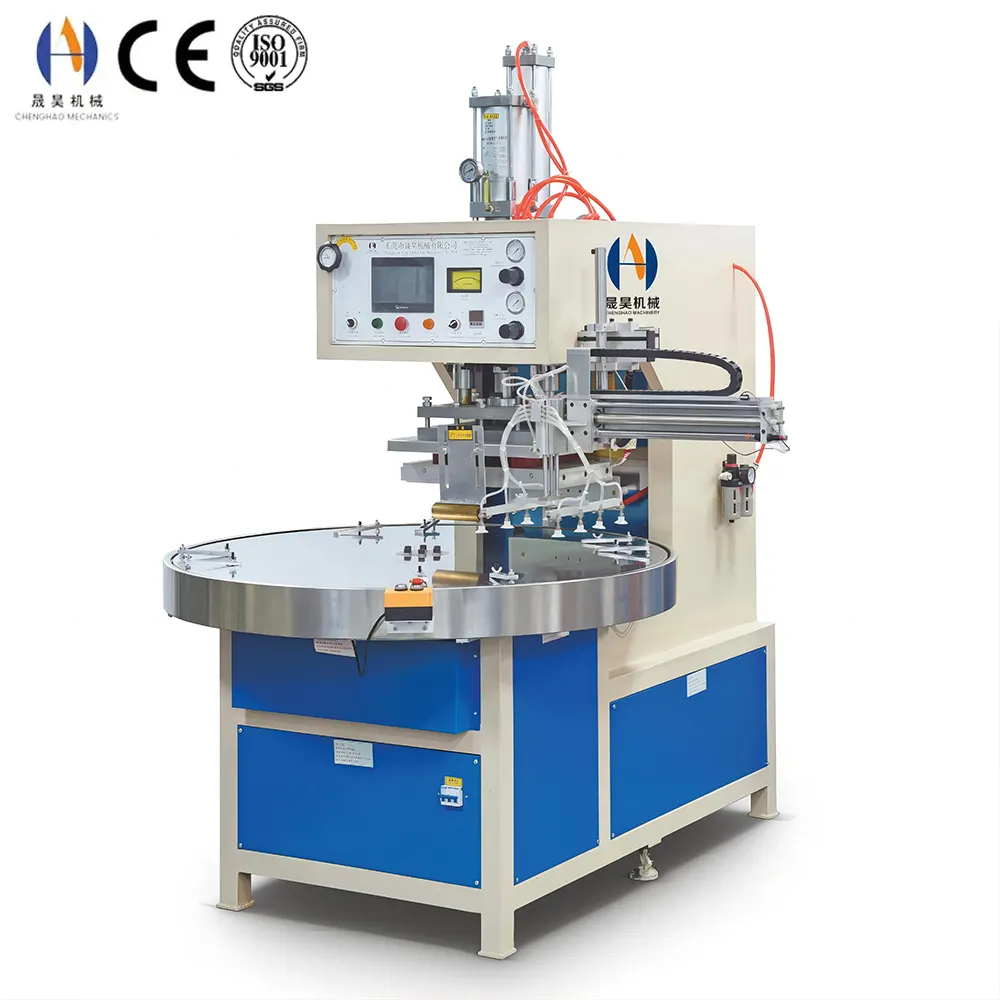
CHENGHAO brand has a great competitiveness in product manufacturing as it adopts advanced RF (Radio Frequency) welding technology. Our RF welding technology guarantees efficient production processes and good results whether in electronics, medical devices or automotive parts. CHENGHAO products use accurate control over radio frequency energy which enhances their reliability, durability of connections as well as precision for complicated structures and micro components. We always aim at giving clients modern production answers that will help them satisfy quick shifting market needs and strict industrial norms.

Dongguan Chenghao Machinery Co., Ltd. was established in 2007. It is a production-oriented modern enterprise integrating R&D, design, manufacturing, sales and technical services. It has passed the IS0 9001:2015 quality management system certification. The company is committed to the field of plastic welding, mainly producing high frequency machines, automatic blister sealing machines, ultrasonic welding machines and automation equipment.
Achieve intricate designs and textures on materials like leather and PVC, enhancing product aesthetics and brand appeal. Ideal for fashion accessories and automotive interiors.
Ensures uniform and controlled heating of materials before processing, optimizing molding and shaping processes. Perfect for industrial manufacturing and production efficiency.
Creates strong, airtight seals in packaging and product assembly, maintaining product freshness and integrity. Ideal for pharmaceuticals, food packaging, and electronics.
Delivers precise and durable welds on thermoplastics such as PVC and PU, ensuring structural integrity in automotive, medical, and electronics manufacturing. Enhances product reliability and performance.
RF welding is suitable for a variety of materials including PVC, PU, PET, EVA, and other thermoplastics. It is particularly effective for joining materials that are sensitive to heat or require precise sealing.
RF welding offers several advantages such as strong and durable seals, minimal material waste, precise control over the welding process, and the ability to create complex shapes and designs with consistent quality.
RF welding differs from ultrasonic welding in that it uses electromagnetic waves to generate heat for welding, whereas ultrasonic welding uses high-frequency mechanical vibrations. RF welding is preferred for materials that are thick or difficult to bond with ultrasonic methods.
RF welding is widely used in industries such as automotive (for airbags, door panels), medical (for blood bags, IV bags), electronics (for protective cases, wearable tech), and packaging (for blister packs, pouches).
When selecting an RF welding supplier, factors to consider include their experience with your specific industry and materials, their capability to handle production volumes, quality certifications (like ISO standards), and their ability to provide customized solutions tailored to your product requirements.


